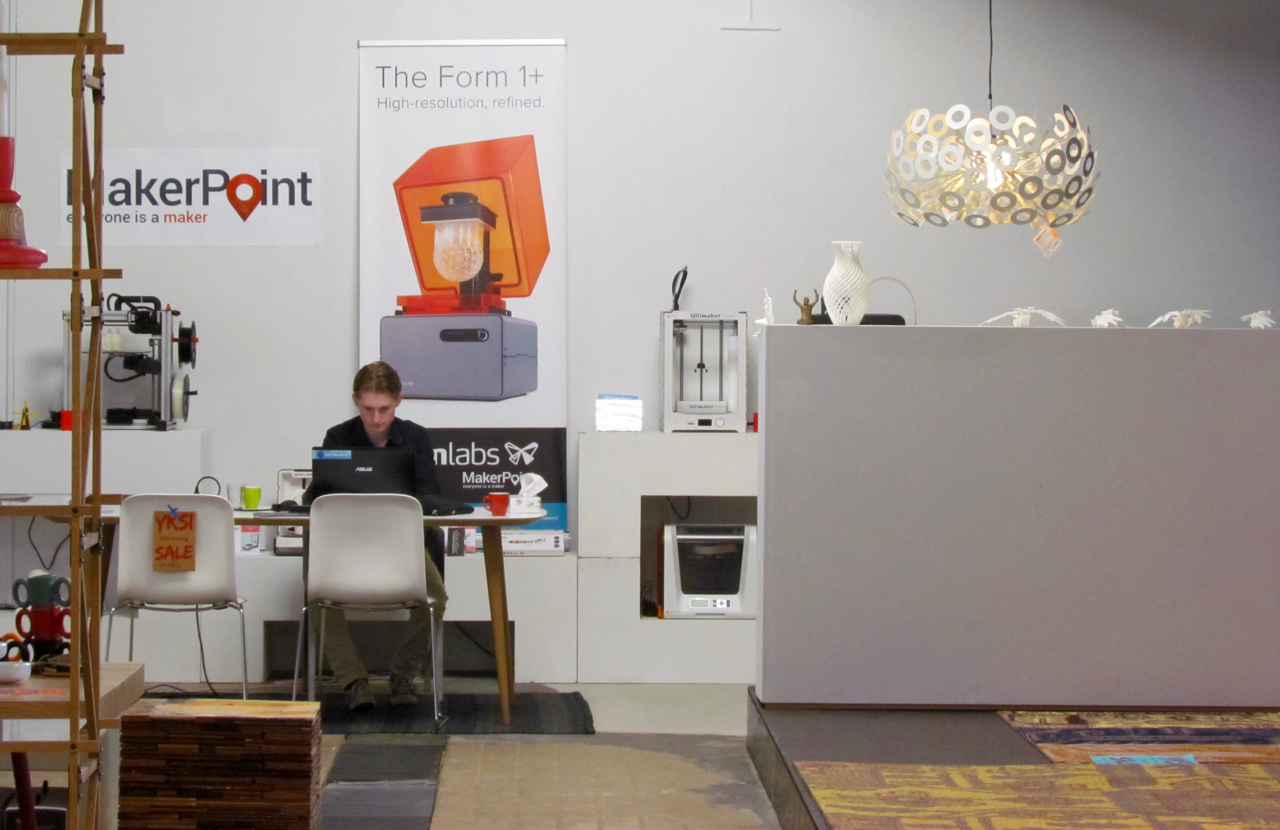
MakerPoint, a Netherlands-based chain of 3D print retail shops, seems to be slowly changing their focus.
There aren’t very many 3D print storefront operations in the world, and even fewer chains. One of them is MakerPoint, a “3D Concept Store”, offering physical locations in five cities in the Netherlands.
The idea is similar to others I’ve seen, and it goes something like this: 3D printing is new and weird, so let’s show the public how it works, much like Apple did when resellers could not get their product presented properly.
To do this, the MakerPoint storefronts offer not only the ability to see and touch actual working 3D printers, but also 3D scanners and 3D software. They also provide a number of services, including 3D scanning and educational workshops to bring interested parties up to speed on the technology.
The breadth of their offering is comprehensive, with sales from many manufacturers, including: Ultimaker, Felix, dddDrop, TripodMaker, Formlabs, Zortrax, CEL-Robox, XYZPrinting, CraftUnique, BCN3d and Atum3D.
This concept has struggled in recent years due to the dramatic drop off in interest from the general public. The initial consumers who jumped on the 3D printing craze train found using the technology was far more difficult than expected. Their experiences have subsequently resulted in a series of negative press, tainting the entire industry, as opposed to just consumer 3D printing.
As a result, I’ve seen multiple storefront operations designed to sell 3D printers to consumers silently fade away. However, the smart ones seem to be switching to a more professional and business focus over consumer marketing.
MakerPoint appears to be making that transition. We were told that consumer visits are dropping, but instead others seek making tools for actual benefit. In other words, the equipment and services will sell to those where it makes financial sense.
The time of selling 3D printers for thrills is over.
MakerPoint also offers design and print services, which fit well into the new business-oriented pattern. In fact, they say the transition is essentially “happening on its own”.
But is the presence of physical stores still necessary? I think it is, as their visibility enables small businesses to notice the technology and get familiar with it in a comfortable setting. Otherwise, they must resort to reading material on the web.
And we know what that says these days.
Via MakerPoint

